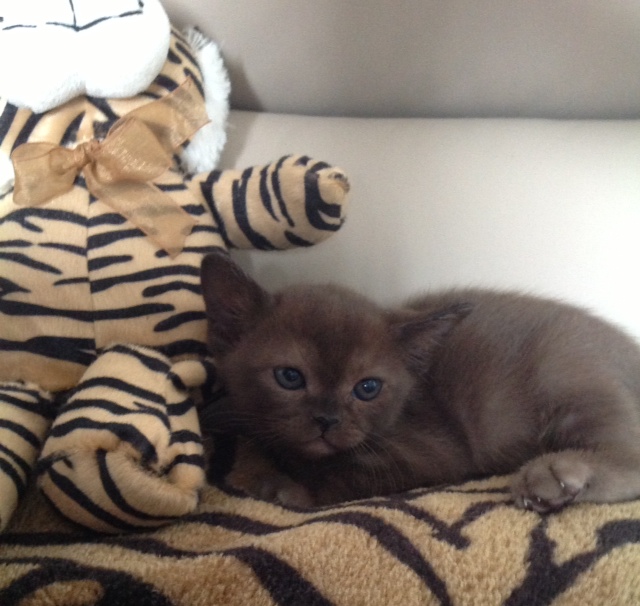Please Take the time to read the following about this genetic disorder , it is a warning to all Burmese kitten buyers to check that the kitten you are thinking of buying is clear of Hypokalemia and that the breeder can show you the kittens parents genetic report . All of our breeding stock have been tested by the University of California genetics laboratory.
Feline Hypokalaemic Periodic Polymyopathy in Burmese Cats
Hypokalaemia is a subnormal serum potassium concentration. Potassium is an ion in the body that plays a crucial role in the function of nervous tissue and skeletal, cardiac and smooth muscle. Without it the body would be unable to function.
Hypokalaemia can be caused by a number of diseases but it has been found to be an inherited recessive trait in Burmese cats in Europe , Asia and Australia.
The first clinical signs are usually seen within 2-24months of age. Clinical signs include periodic ventroflexion of the neck and protrusion of the forelimbs with muscle tremors and transient muscle pain. Clinical signs may be triggered by stress or exercise.
Diagnosis is made by blood tests and muscle biopsies. These show low levels of serum potassium and elevation of muscle enzymes caused by damage to the muscle.
Treatment involves supplementation of dietary potassium and most clinical signs will resolve with this if genetics is the only cause of the hypokalaemia. Some cats may eventually not need potassium supplementation.
There is a genetic test available to identify carriers of the disease in Burmese. Steps have been taken to eradicate the disease by removing carriers from the breeding population.We are proud to say that our cattery is clear of this disorder and that all our breeding cats have been tested and our cats reports are available to view.

